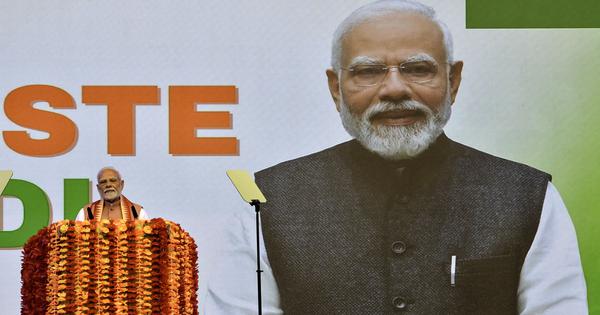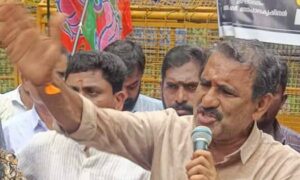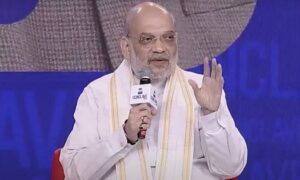
History offers a compelling paradox: sometimes, true strength in leadership lies not in unwavering success but in the courage to acknowledge failure.
One such instance unfolded in Maharashtra during the late 1980s. The Shetkari Sanghatana, under the leadership of Sharad Joshi, was a significant force, championing the rights of farmers and challenging the urban bias in agricultural pricing.
Joshi, a charismatic figure, launched the “Doodh-Bhat Andolan”, or the milk-rice agitation, demanding guaranteed minimum prices for these commodities. The strategy was audacious: farmers would withhold milk supplies from cities, disrupting the economic order and forcing the government to negotiate.
It was a high-stakes gamble. How long could farmers, often struggling with their own economic survival, afford to hold back perishable goods?
The envisioned solidarity faltered. Some farmers heeded the call, but many others continued to supply milk to the cities, diluting the impact of the movement and negating the pressure on the government. The andolan fell short of its goals.
In the aftermath, Joshi convened a press conference. Anticipation hung heavy in the air. How would he salvage the situation? Would he deflect blame or attempt to spin the failure? His opening words were disarmingly simple: “I stand before you as the commander of a defeated army.”
He followed this with an even more stark admission: “The ‘Doodh-Bhat Andolan’ has completely failed and I am withdrawing it.”
This act of unvarnished honesty was a profound moment. It carried significant risks. Activists had worked tirelessly to mobilise support, traversing rural areas with limited communication links – there were no mobile phones back then. To admit their efforts had been in vain could have been permanently demoralising. Joshi could have easily found scapegoats or fabricated justifications.
Instead, he chose a different path – the path of accountability.
Rather than diminishing his stature, Joshi’s honesty resonated deeply with the farmers. His popularity grew. He demonstrated a crucial leadership quality: the strength to admit fallibility. In a political landscape often dominated by spin and self-preservation, his integrity stood out.
This incident holds a powerful lesson: true leadership isn’t always about projecting an image of invincibility – it’s about the courage to confront reality, even when that reality is uncomfortable.
Consider, by contrast, the predicament of India’s central government caught in a geopolitical bind. During the conflict between India and Pakistan in May, US President Donald Trump announced a ceasefire a few hours before India did so. Responding effectively to the Opposition’s criticism has proven challenging for the Centre.
Imagine a scenario in which Atal Bihari Vajpayee is the current prime minister. The Opposition is criticising him for halting Operation Sindoor under American pressure. In the Lok Sabha, Vajpayee says, “Yes, we had to do it. And you must understand the situation. The truth is that America is the wealthiest and most powerful country in the world. Given the current global circumstances, India is not free to make decisions as it pleases. I took this decision keeping in mind the broader interests of our nation.”
Had Vajpayee given such a response, would his popularity have diminished? Like Joshi, Vajpayee’s popularity might have increased.
History offers evidence.
After winning the 1971 war and splitting Pakistan with the creation of Bangladesh, Indira Gandhi was openly praised by Vajpayee for having “done epoch-making work”. This praise did not diminish his popularity in the least. On the contrary, it added depth to his political image.
Later, Vajpayee went on to become prime minister, defeating the Congress. Similarly, Vajpayee, while expressing respect for Jawaharlal Nehru, could also be a harsh critic of Nehru’s policies.
During Vajpayee’s tenure, when Pakistani troops infiltrated Kargil, the Opposition did not go overboard in criticising his government for negligence. After all, the war in Kargil had happened because Pakistan had acted provocatively. But there was no unrealistic expectation from Vajpayee to seize Pakistan-occupied Kashmir as a result.
The absence of this desire was not a sign of weakness on Vajpayee’s part but his strength.
Vajpayee had served as prime minister twice, both times for short periods. In 1996, his government fell in 13 days. In 1998-’99, it lasted 13 months.
At that time, his speech declaring, “We do not have a majority, and we are going to the President to submit our resignation” resonated with even those opposed to the Bharatiya Janata Party. It evoked a sense of empathy. There was no pretense in that speech but a candid acceptance of reality.
Not securing a majority in the Lok Sabha was a significant defeat for Vajpayee. Yet, even in that defeat, there was an aspect of his personality that made him, in a deeper sense, politically victorious. The message was clear: “I am not some larger-than-life political leader. I am an ordinary person like you, vulnerable to circumstances.”
Vajpayee’s strength was not solely a product of his individual character. It also reflected the values of the Indian society of his time.
Were we, as a society, different, then? Have we changed so much now?
Today, we crave an overwhelmingly powerful leader. A leader who can defy global powers and assert India’s arrival as a powerful nation on the world stage. With this mindset, how can we understand how powerful Vajpayee truly was? When Vajpayee met leaders from developed nations, when the US president welcomed him at the White House in September 2000, we did not feel a sense of pride in our nation’s honour.
This was true not just for Vajpayee but also for Nehru, Indira Gandhi and PV Narasimha Rao. India, then, was economically less developed than it is today. Yet, we were not as sensitive to how our prime ministers were received in developed nations. It was not a psychological need for us and that was our strength as a society. That is why Vajpayee, too, had that strength.
What, then, constitutes true strength in a political leader? It lies in their freedom: the freedom to acknowledge mistakes, to praise opponents and to prioritise the greater good over personal ego.
Today, the nationalism that dominates us is aggressive but not strong. Strong nationalism has depth. It is not triggered by isolated incidents. Today, we are easily upset by minor incidents. We have become overly sensitive about whether our prime minister stands in the first or second row of leaders from developed nations.
Our nation itself has become narcissistic. We view the world solely through our own lens. We are still a developing country. Our share in global trade is minuscule. Of course, we want to increase it. But we are not even aware of this. Enthusiasm for the nation’s development is essential, but it does not require us to lose our sense of self.
The world today is led by leaders who strip their people of their sense of self. These leaders are drawn to others like them. Trump, with his brash and reckless personality, has often expressed admiration for Russia’s Vladimir Putin. Leaders who adhere to democratic norms and accept defeat or compromise are dismissed by Trump as “losers”, which is, in his view, the ultimate insult.
Trump’s sole principle is: do whatever it takes, but win. No wonder he admires Putin, who ruthlessly crushes political opponents and paves the way for authoritarianism.
As the world faces major crises, from global environment collapse to conflict, it is trapped in the clutches of shallow, egotistical leaders. What is sorely needed is leadership that appears “weak” on the surface but is truly strong: leadership that does not strip us of our sense of self by offering false assurances.
Milind Murugkar writes on economic and political issues.
This article first appeared on Scroll.in
📰 Crime Today News is proudly sponsored by DRYFRUIT & CO – A Brand by eFabby Global LLC
Design & Developed by Yes Mom Hosting






